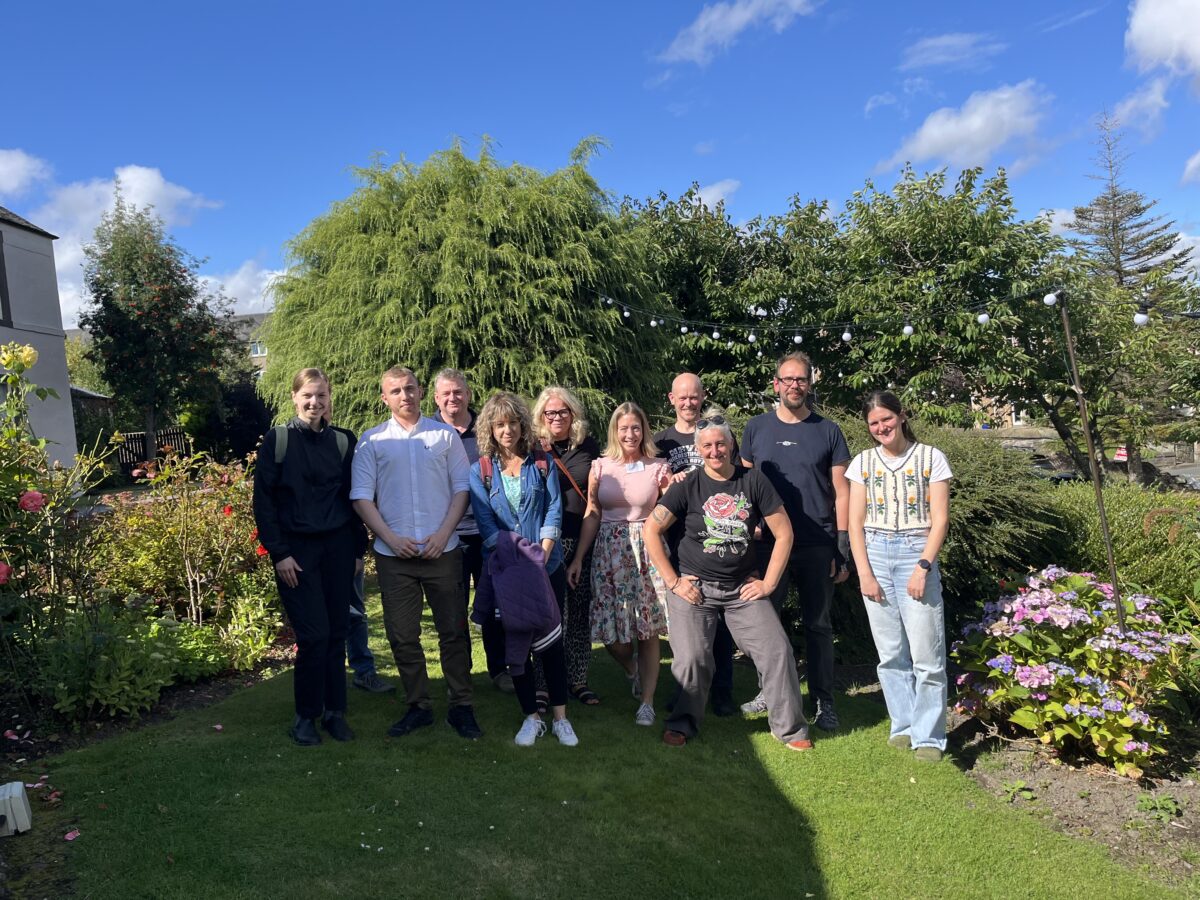Cover photograph: Climate Hubs coordinators standing in the lovely garden of Parklands Hotel, Perth at the end of the session (some missing, had to run for their trains!)
At a crucial time for energy transition plans in Scotland, the Climate Action Hubs align to keep community interests at the heart of energy design and maximise their positive impact across the theme.
In this Summer of 2024, the Climate Action Hubs came together from all around Scotland to chart a journey for impactful community climate action focused on the ‘Energy’ theme. This meeting was not just a chance to brainstorm but a dedicated effort to devise actionable, place-based strategies that fit within the already stretched capacities of Hubs’ staff.
The goal was clear: ensure every community, regardless of its size or resources, can have a say and a stake in the future of energy. After a series of processes, including storytelling, sociocracy, stakeholder mapping, and action planning, these are some of the reflections and action plans that came from this session:
The Vision for Community Energy
One of the most striking revelations was Scotland’s current state of community-owned energy. At less than 1% of total energy generation, it’s clear that community-owned energy is still in its infancy. Yet, the benefits of locally created, owned, and distributed energy are profound. Take, for instance, the Point & Sandwick wind farm in the Western Isles, which generated 32 times more revenue for its community compared to traditional commercial developments. Such examples demonstrate the transformative potential of community energy projects.
The Hubs’ vision is ambitious: by 2045, every town, village, or community council catchment in Scotland should have the infrastructure to generate or store its own renewable energy. This would not only meet local energy needs but also provide communities with a steady income stream, significantly enhancing their capacity for local climate actions.
Empowering Communities Through Policy and Advocacy
A significant challenge in community climate action is the complexity of energy policies. At the national level, policies can be difficult to influence and often fail to align with local needs. To address this, the Hubs proposed creating a subgroup of Hub staff experienced or interested in policy advocacy. This subgroup will map the climate policy landscape, identify key stakeholders, and establish a Steering Group to help influence national policies.
Additionally, they aim to secure funding for a full-time Policy Officer who will work across all Hubs to navigate and impact national energy policies effectively. This role will be crucial in translating local needs into actionable policy changes.
Leading the Charge in Retrofit Initiatives
Retrofitting existing buildings to enhance energy efficiency is a critical component of a Just Transition to Net Zero. Community-led retrofit academies, like NESFIT, are already making strides, but funding remains a significant barrier. To support these efforts, the Hubs propose mapping existing community retrofit projects to better understand the landscape and identify opportunities, facilitate an online meeting of these community initiatives to share knowledge and strategies and organise a summit to develop a community manifesto and advocate for a national retrofit plan that integrates community-led initiatives.
A Call to Action
This gathering and thinking session marked a pivotal moment in the Hubs’ collective journey towards a sustainable energy future. By harnessing the power of community collaboration, strategic partnerships, and agile decision-making, we are setting the stage for transformative change. Together, we can create a future where every community not only participates in but thrives on its own renewable energy.
You can get in touch with your regional climate action hub to learn more about the progress of these plans and find out how you can get involved.

